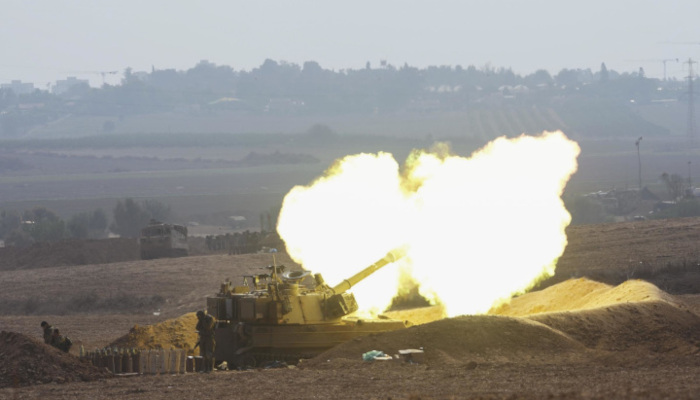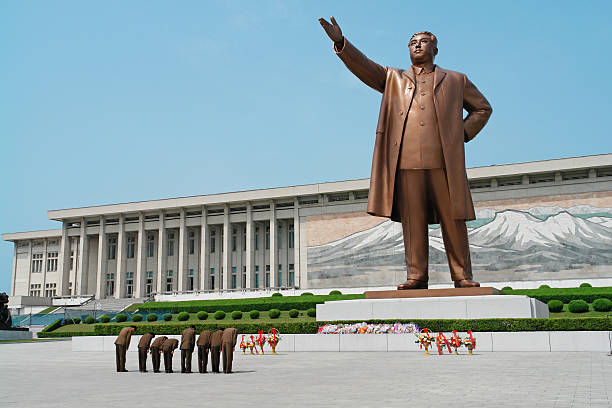
There are deep stirrings beneath the surface of the Hamas vicious slaughter against Israel on October 7.
A political victory by Hamas and its sponsors, perhaps an extremist wing in Iran, might frighten almost every Muslim government in the world. Over the past decades, and especially in recent years since the war against ISIS, many of these governments sidelined their most radical factions. They opened increasingly robust channels with the United States and even Israel.
Peace and development
Most of the Middle East wants peace and development. Population growth and the relative decrease in income from gas and oil sales are forcing a change of pace. Local industry must diversify trade as well.
Many may wish to integrate Iran into these dynamics, but there is no desire to fall back under the practical and psychological blackmail of the anti-Western holy war extremists.
Of course, the Palestinian issue remains sensitive because there is no political perspective for the millions living within Israeli-controlled borders. The attack shows that the issue is explosive and ultimately not well managed.
These governments may fear that entering Gaza will become a horrible bloodbath, incensing local public opinion. It is cause for significant irritation with Israeli Prime Minister Benjamin Netanyahu. He was the guarantor of the new Israeli peace but clearly neglected national security to get embroiled in a controversial judicial reform that has split the country.
Nonetheless, many of Israel’s neighbors do not wish to waste years of political work with Israel. It would put many in the current ruling classes at risk.
This makes Hamas much more isolated than it seems. Perhaps there is little desire to support the Palestinian cause, even beyond fears of Israeli retaliation. Even in Syria and Iran, there is probably no eagerness to be drawn into open warfare with Israel in support of Hamas, a more radical force than the leadership in Damascus or Tehran.
We will see the reaction
Hamas’s military arm could be eliminated reasonably quickly without strategic external support − that is, without a significant regional widening of the conflict.
Counter-evidence of these feelings will, of course, come with the entry of the Israeli army, the IDF, into Gaza. There, we will see the reaction of the governments in the area. But that reaction will also depend on what happens on the ground. There are two questions: How efficiently will the IDF take control of Gaza, and how strongly will Hamas resist it?
More precisely, since the IDF reaction was a foregone conclusion, did Hamas organize the attack to draw the IDF into a Gaza that will become the Stalingrad of the Arab world? Or are Hamas men unprepared for a head-on confrontation with the IDF? Is the population not all aligned with Hamas and ready to move away from it?
The answer to these questions depends on the IDF’s ability to intervene and the political message Israel shares with the people of Gaza. It would be crucial, perhaps, to say that the war is against the military arm of Hamas, not against the population or the Arab world.
There is a complication here. Israel has failed in its intelligence in Gaza. It has no reliable human sources on the ground, it has lost analytical capacity, and the policymakers have failed to listen. So today, the Israeli government is less sure about its intelligence, and any prediction about attacking Gaza may be wrong because of over-optimism or over-pessimism, which would multiply casualties.
But it is clear that beyond the Arab governments’ circumstantial statements, many are rooting for the quick success of the IDF. A defeat or a very prolonged confrontation would open the door to a political success for Hamas, which in turn could usher in a new season of Islamic terrorism around the world.
Beijing perspectives
The comparison with 9/11 here is not absolutely wrong. Then the US had no effective adversaries and could focus on the enemy of the moment. Today, the attack comes amid the ongoing war in Ukraine and growing tension with China.
This complex dynamic could allow Beijing to begin to at least partially step out of its shadow. Retracing the steps of the old prudent neutrality today could multiply the friction tomorrow.
In 2001, the US was putting China under pressure, but after the attack, Beijing opened a page of excellent cooperation with Washington, which gradually closed from 2004-05. That collaboration also helped to boost confidence about China in the US.
Today, the situation is very different, and indeed, the tensions between the US and China are much more sensitive and thorny. Still, it could also be a time for fresh ideas and perspectives in Beijing without waiting for the Gaza clashes to end.
Israel needs help today, and its enemies may be fewer than they appear. It will be crucial for China to play out its next moves carefully.









